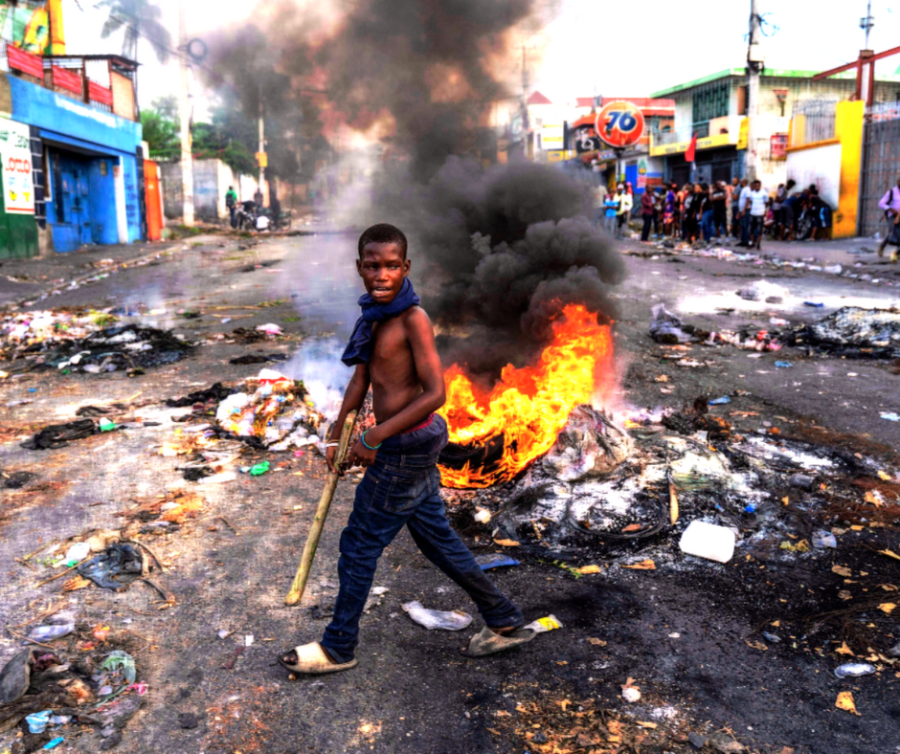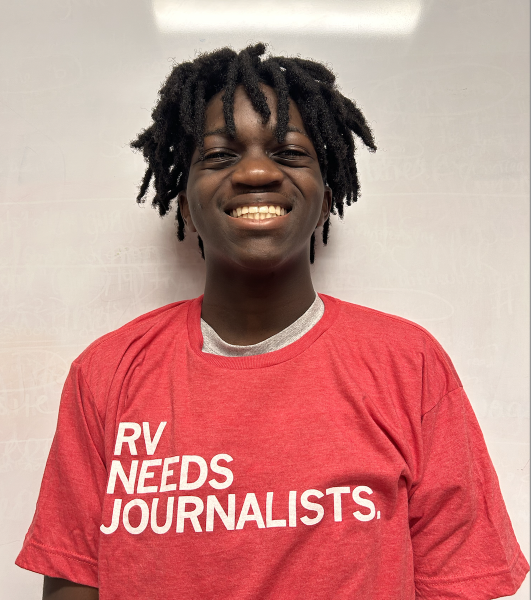The U.S. must stay out of Haitian affairs
A long history of self-serving political and military actions have further damaged the struggling nation of Haiti
Images from the civil unrest in Haiti, courtesy of NPR.org
March 14, 2023
In the wake of the assassination of former Haitian president Jovenel Moïse in July 2021, Haiti has been in complete economic turmoil and a state of violent social unrest. Fuel prices in Haiti have increased and access to medical care has diminished which has lead to a cholera outbreak. The Haitian government is currently threatening to use foreign military forces to suppress protesters. And yet, the U.S. and U.N. are urging the international community to stand in solidarity with Haiti’s illegitimate president, Ariel Henry, and the U.S. has gotten dangerously close to sending troops to Haiti. The writing is on the wall for another illegal occupation of Haiti against the wishes of the Haitian people, and the U.S. will be largely at fault for any atrocities that come of it.
The protests and civil unrest in Haiti are results of the illegitimate Henry regime, which began in July 2021. Prior to Moïse’s assassination, Henry had been selected to be the next Prime Minister of Haiti, however he had not yet taken office at the time of Moïse’s death. Henry has been acting as the acting president and PM of Haiti since July 20, 2021 and he has since postponed Haiti’s presidential elections in an attempt to remain in power for as long as possible. This is in spite of Haiti’s constitution, which mandates that an election be held between 60 and 120 days of a presidential vacancy (Article 149). Since taking office, Henry has mobilized Haiti’s police force to brutalize protesters and the overwhelming sentiment among the Haitian people at the moment is that Henry is an illegitimate and incapable leader that needs to resign. However, the U.S. has maintained support for his administration and has kept him in power for far too long.
From Moïse’s death on July 7 to July 20, the acting PM and acting president in Haiti was Claude Joseph. At the time of Moïse’s death, Joseph had been the acting PM of Haiti since 2014, when the previous PM resigned. This would make him the rightful acting President under article 149 of Haiti’s constitution. However, a self-appointed group of international diplomats known as the “Core Group”, made up of ambassadors to Haiti from Brazil, the EU, France, Germany, Spain and the United States all pressured Joseph to step down in favor of Ariel Henry, even though the U.N. had already recognized Joseph as the rightful PM just a few weeks prior. Since then, the U.S. has made it very clear that they are aligned with the Henry regime over the Haitian people, having given training resources and 48 million dollars to the police force that Henry uses to suppress protests. American news outlets have characterized protests led by Haitians as “gang revolts” in an attempt to garner international support for what seems to be an inevitable invasion of the country. The Haitian people have seen before what happens when the U.S. or UN attempt to insert themselves into Haitian politics; the demands of the Haitian people are rarely met.
United States support of the Haitian people is incredibly conditional and largely based on whether or not the current Haitian government is pro-American in its policies, and not whether or not the president is a benefit to Haiti. François Duvalier, Jean-Claude Duvalier and Phillipe Sudré Dartiguenave were all Haitian presidents that were either hand-picked by the United States, or kept in power by support from the U.S. government. They were all backed by the U.S. because they were incredibly easy to force into acting on America’s behalf. The U.S. pressured Dartiguenave into rewriting a provision in the Haitian constitution which had prevented non-Haitian businesses or people from owning land in Haiti. The U.S. viewed the Duvaliers as anti-communists in the Caribbean that could halt Fidel Castro’s plan to spread communism through Latin America, so the U.S. funneled money, guns and aid to their authoritarian government. When Jean-Claude fled Haiti for France in 1986, President Reagan worked closely with the French government to ensure that he could escape safely. However, when Haitian state officials dare to challenge U.S. hegemony in Latin America and the Caribbean, they meet immediate resistance from the U.S. Haitian president Jean-Bertrand Aristide was ousted in a U.S. backed coup because he tried to lessen Haiti’s dependence on America. Barack Obama fought to keep the Haitian minimum wage at 31 cents per hour amid attempts by the Haitian government to raise it to 61 cents, so American companies could continue to exploit Haitian workers. U.S. intervention in Haiti has always been to support America’s interests, rather than Haiti’s interests.
Politics aside, when non-Caribbean nations get involved in Haiti it often results in tragic humanitarian or environmental disasters. In 2010, Haiti experienced a cholera outbreak that was later linked to a sewage leak from a UN peacekeeper camp; in 2016 the UN admitted responsibility for the outbreak, with UN spokesperson Farhan Haq saying that “the U.N. has become convinced that it needs to do much more regarding its own involvement in the initial outbreak and the suffering of those affected by cholera.” Further, in the late 1970s, there was an African Swine Fever outbreak in Haiti and the Dominican Republic. Unsurprisingly, the U.S. got involved in quelling the outbreak in order to protect their own interests; they feared that the outbreak could spread to livestock in the United States. The U.S. felt that the solution to the outbreak was to eradicate the native Creole pig population in Haiti as a part of a program known as the Program to Eradicate African Swine Fever and to Develop Pig Raising. The Creole pig population went extinct, and the Haitian farmer community experienced widespread poverty due to losing such a valuable crop. The farmers that lost pigs were compensated with American or Canadian pigs, but these pigs died out quickly because they weren’t accustomed to living in the Caribbean. The widespread poverty in Haiti’s farmer community forced Haitian children to work in fields during the day, which lowered school enrollment and further contributed to the poverty issue in Haiti’s countryside. Even if the U.S. has benevolent intentions when invading Haiti this time around, the U.S. has always seen its Haitian endeavors as an afterthought and won’t treat Haiti with any sort of carefulness.
All of this isn’t to say that there is a clear and obvious solution to Haiti’s current crisis. There isn’t. Some Haitians believe that Claude Joseph should be reinstated as acting president. Some believe that there should be an election held as soon as possible to replace Ariel Henry.
Emily Pierre, a student at RV who is the daughter of Haitian immigrants, believes that the U.S. isn’t obligated to help Haiti, but “any help that they can offer, [she] appreciates,” adding that she believes that sending troops can help with stability. But what remains clear is that Ariel Henry is either incapable or uninterested (or both) in helping the Haitian people; Pierre said “the current Haitian government just isn’t in a state [to resolve its current crisis].”
America’s support of Henry since his illegitimate rise to power has not resulted in any sort of stability in Haiti, and America needs to quit pretending that they have Haiti’s best interests at heart. We’ve seen this happen before: America supports a leader is Haiti with dubious claims to authority, Haitians will protest against this new leader (the U.S. will label these political protests as “gang uprisings” to villanize any opposition to the aforementioned Haitian leader) and America uses Haiti’s vulnerability to invade the country and continue to exploit its people, just as it’s been doing for the last 100 years.







